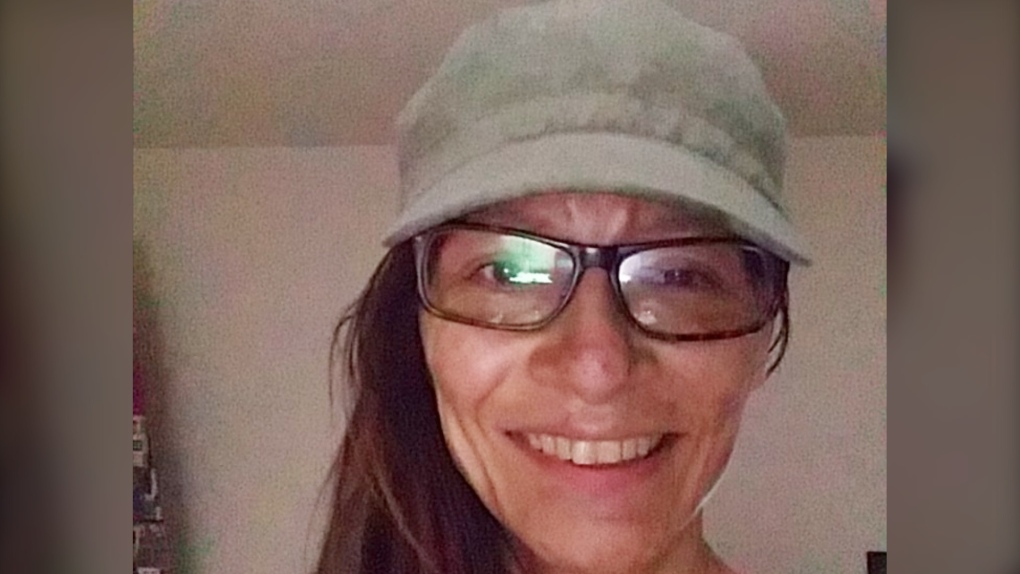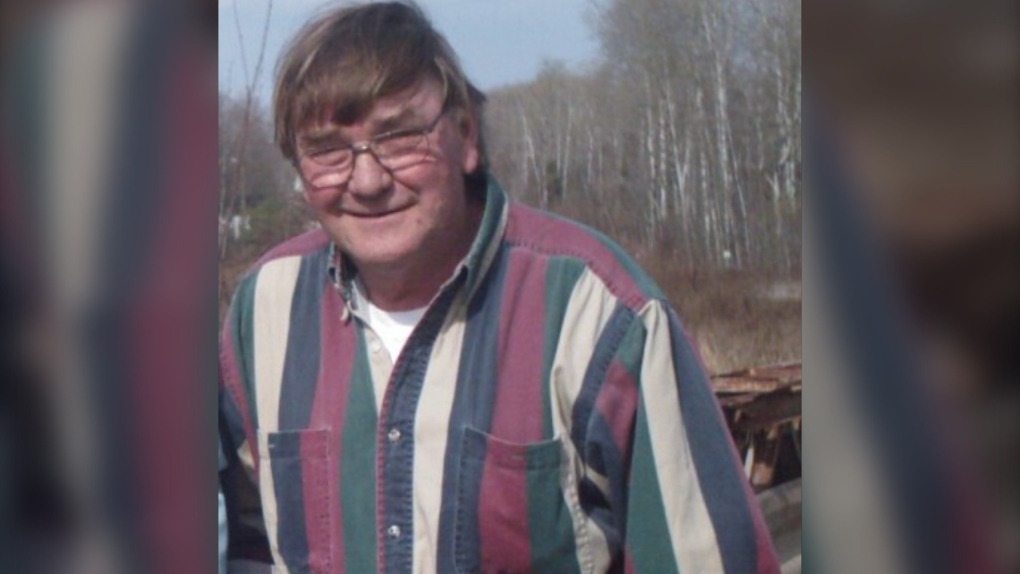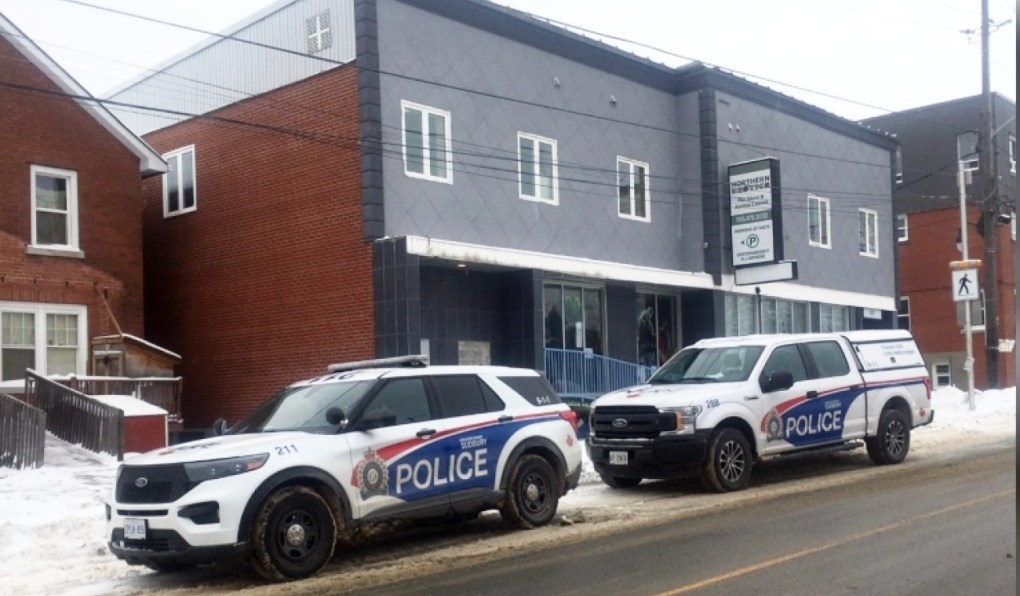Sudbury woman guilty of second-degree murder in gruesome stabbing death
Warning: This story includes graphic descriptions of a murder scene many will find upsetting. Reader caution strongly is advised.
A Sudbury jury has found Felicity Altiman guilty of second-degree murder in the December 2020 stabbing death of Robert Keskinen, 75, after two days of deliberations.
 Felicity Alitman, 43, is accused of murdering her 75-year-old neighbour Robert Keskinen in December 2020 in his Kathleen Street apartment in Sudbury. (Facebook)
Felicity Alitman, 43, is accused of murdering her 75-year-old neighbour Robert Keskinen in December 2020 in his Kathleen Street apartment in Sudbury. (Facebook)
Altiman, 43, wore a black, long-sleeved casual shirt with white stripes down both arms and appeared animated as the verdict was announced Wednesday afternoon.
She was seen swinging back and forth in her chair as the foreman announced the verdict, and each juror – six men and six women -- confirmed they had voted guilty.
Altiman, who has been in jail since her arrest Jan. 7, 2021, appeared visibly upset and teary-eyed as courtroom security placed her in handcuffs to leave the courtroom.
Second-degree murder comes with an automatic sentence of life in prison, but the judge gets to determine how long she must spend in incarceration before she becomes eligible for parole.
Justice Dan Cornell asked each juror for a sentencing recommendation, saying they could recommend Altiman serve a minimum of 10 years to a maximum of 25 years before she could be eligible for release on parole.
They returned later with various recommendations, and Cornell then thanked them for their service to the community.
A date for sentencing will be set Nov. 19 and is expected to be scheduled in 2025.
Defence attorney Steven Hinkson, from Toronto, requested that pre-sentence and Gladue reports are prepared for use during sentencing.
Several members of Keskinen's family were in the courtroom when the verdict was delivered.
They declined to comment until after the sentencing hearing, when victim impact statements will be delivered.
The guilty verdict comes after three weeks of testimony. The jury began deliberations around noon Tuesday on whether Altiman killed Keskinen sometime on Dec. 24 or Dec. 25, 2020.
Keskinen was found dead in his Kathleen Street apartment on Boxing Day 2020 during a wellness check. He had more than 100 stab wounds and his scrotum was cut off and stuffed in his mouth.
Juror questions
Earlier Wednesday, Cornell called the Crown and defence back to the courtroom after receiving a note containing three questions from the jury:
What does state of mind mean? What constitutes reasonable doubt? For example, does 80 per cent mean reasonable doubt? How far off can theories be made from the facts?
 The body of Robert Keskinen was found in his Kathleen Street apartment on Boxing Day 2020. He had been stabbed to death. (Obituary photo)
The body of Robert Keskinen was found in his Kathleen Street apartment on Boxing Day 2020. He had been stabbed to death. (Obituary photo)
Cornell read the questions aloud in the order in which they were written and the three parties discussed the wording the judge would use to answer them without the jury present.
Cornell pointed out that the jury was first asked to determine whether the Crown proved its case beyond a reasonable doubt.
If they are considering the state of mind, he said, they should have already made a decision about reasonable doubt.
Hinkson argued that the judge should just answer the questions that the jury asked and not go into detail or tell them how to address the questions.
Cornell told the jury when they returned to the courtroom around 11:30 a.m. that they must first decide if Altiman killed Keskinen.
Hinkson also disagreed with the judge and Crown on giving the jury two pieces of evidence as examples but was ultimately overruled.
"Two pieces of evidence that may be of particular importance: If Ms. Altiman stabbed him more than 100 times, can there be any doubt about what she intended?" Cornell said.
"The other piece of evidence on this point that struck me of particular importance was the after-the-fact conduct when she told her brother that ‘something bad has happened and I may be in trouble.'"
The answer to the state of mind question included the understanding of intent.
 Greater Sudbury Police are asking the public for information to find out who is responsible for a murder in the city on Boxing Day. The body of Robert Keskinen, 75, was discovered in a Kathleen Street residence around 2:20 p.m. (File)
Greater Sudbury Police are asking the public for information to find out who is responsible for a murder in the city on Boxing Day. The body of Robert Keskinen, 75, was discovered in a Kathleen Street residence around 2:20 p.m. (File)
"Either she intended to cause his death or cause bodily harm that would cause his death or that death was likely to result and would have been reckless if death would occur or not," Cornell said.
"(If) you found Ms. Altiman stabbed him, the evidence shows he was stabbed more than 100 times and cut off his scrotum, what conclusion can you draw from that?"
All parties agreed that the judge can’t offer a percentage in relation to reasonable doubt, citing case law that proof is more than the balance of probabilities but doesn’t have to be absolute certainty.
- Download the CTV News app now
- Get local breaking news alerts
- Daily newsletter with the top local stories emailed to your inbox
"It can’t be imaginary, far-fetched or frivolous. It must be reasonable," Cornell explained to the jury.
"Not based on sympathy or prejudice, based on reason and common sense. More than that, it is a doubt that logically arises from the evidence or lack of evidence. The probable or likely guilt is not enough."
Absolute certainty nearly impossible
He explained that the Crown does not have to prove anything with absolute certainty, as that is nearly impossible.
In response to the jury’s last question about how far off theories can be made, he said "The simple answer is they cannot."
"Theories are not facts," Cornell said.
"You must rely on the evidence that came forward. This is largely a circumstantial case so you will have to draw inferences."
Background
Felicity Altiman was charged with his murder on Jan. 7, 2021, and has remained in custody since.
The three-week trial started Oct. 1.
Defence attorney Steven Hinkson called no witnesses in the case.
Hinkson offered an alternate theory that Altiman stole from the man after she found him dead, but isn’t responsible for his murder.
CTVNews.ca Top Stories

opinion Tom Mulcair: Prime Minister Justin Trudeau's train wreck of a final act
In his latest column for CTVNews.ca, former NDP leader and political analyst Tom Mulcair puts a spotlight on the 'spectacular failure' of Prime Minister Justin Trudeau's final act on the political stage.
B.C. mayor gets calls from across Canada about 'crazy' plan to recruit doctors
A British Columbia community's "out-of-the-box" plan to ease its family doctor shortage by hiring physicians as city employees is sparking interest from across Canada, says Colwood Mayor Doug Kobayashi.
'There’s no support': Domestic abuse survivor shares difficulties leaving her relationship
An Edmonton woman who tried to flee an abusive relationship ended up back where she started in part due to a lack of shelter space.
opinion King Charles' Christmas: Who's in and who's out this year?
Christmas 2024 is set to be a Christmas like no other for the Royal Family, says royal commentator Afua Hagan. King Charles III has initiated the most important and significant transformation of royal Christmas celebrations in decades.
Baseball Hall of Famer Rickey Henderson dead at 65, reports say
Rickey Henderson, a Baseball Hall of Famer and Major League Baseball’s all-time stolen bases leader, is dead at 65, according to multiple reports.
Arizona third-grader saves choking friend
An Arizona third-grader is being recognized by his local fire department after saving a friend from choking.
Germans mourn the 5 killed and 200 injured in the apparent attack on a Christmas market
Germans on Saturday mourned the victims of an apparent attack in which authorities say a doctor drove into a busy outdoor Christmas market, killing five people, injuring 200 others and shaking the public’s sense of security at what would otherwise be a time of joy.
Blake Lively accuses 'It Ends With Us' director Justin Baldoni of harassment and smear campaign
Blake Lively has accused her 'It Ends With Us' director and co-star Justin Baldoni of sexual harassment on the set of the movie and a subsequent effort to “destroy' her reputation in a legal complaint.
Oysters distributed in B.C., Alberta, Ontario recalled for norovirus contamination
The Canadian Food Inspection Agency has issued a recall due to possible norovirus contamination of certain oysters distributed in British Columbia, Alberta and Ontario.

































